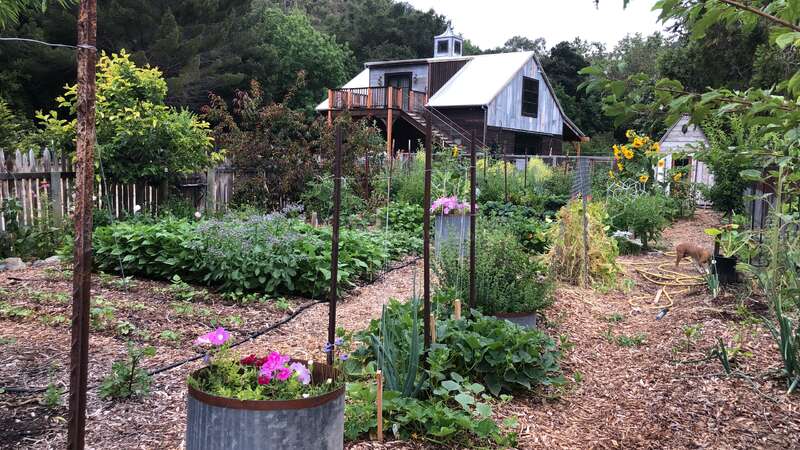
Backyard Chickens 101: A Guide to Raising Happy, Healthy Hens (and Getting Fresh Eggs!)
Is there anything quite as satisfying as collecting your own, still-warm eggs from your very own backyard? The clucking, scratching, and cheerful pecking of chickens add a unique charm to any homestead. But before you rush out to buy a flock, it's essential to understand the commitment and care involved in raising happy, healthy hens. This guide will walk you through everything you need to know about backyard chickens, from choosing the right breed to building a secure coop, ensuring a steady supply of fresh, delicious eggs for your table.
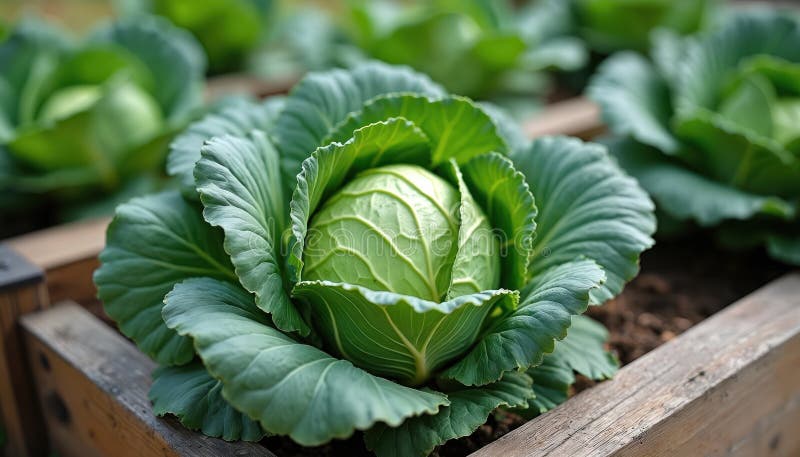
Why Raise Backyard Chickens?
Beyond the joy of farm-fresh eggs, raising chickens offers a multitude of benefits for the modern homesteader.
- Pest Control: Chickens are voracious insectivores, happily gobbling up garden pests like slugs, snails, and unwanted bugs.
- Natural Fertilizer: Chicken manure is a valuable source of nitrogen, phosphorus, and potassium, enriching your garden soil and boosting plant growth. Great for organic gardening!
- Composting Powerhouse: Chickens can significantly accelerate your composting process, turning kitchen scraps and yard waste into nutrient-rich compost.
- Companionship: Believe it or not, chickens have distinct personalities and can become surprisingly endearing members of your family.
- Sustainable Living: By raising your own chickens, you reduce your reliance on commercially produced eggs, contributing to a more sustainable lifestyle.
Getting Started: Planning Your Chicken Journey
Before bringing your feathered friends home, careful planning is crucial. Consider these factors:
- Local Ordinances: Check your city or county regulations regarding backyard chickens. Some areas have restrictions on the number of chickens allowed, coop placement, or even prohibit roosters.
- Space Requirements: Chickens need adequate space to roam, scratch, and dust bathe. As a general rule, provide at least 4 square feet of coop space and 8-10 square feet of outdoor run space per chicken.
- Predator Protection: Protect your flock from predators such as foxes, coyotes, hawks, and raccoons. A secure coop and run are essential.
- Budget: Factor in the cost of the coop, feed, waterers, feeders, bedding, and potential veterinary care.
- Time Commitment: Chickens require daily care, including feeding, watering, egg collecting, and coop cleaning.
Choosing the Right Chicken Breed
Selecting the right breed is key to a successful backyard chicken experience. Here are a few popular choices for beginners:
- Rhode Island Red: Known for their hardiness, excellent egg production, and friendly temperament.
- Plymouth Rock: Another reliable egg layer with a docile nature and attractive barred plumage.
- Orpington: A dual-purpose breed (meat and eggs) with a calm and gentle disposition, making them ideal for families with children.
- Easter Egger: These chickens lay eggs in a variety of colors, including blue, green, and pink, adding a touch of whimsy to your egg basket.
- Sussex: A heritage breed, well adapted to colder climates.
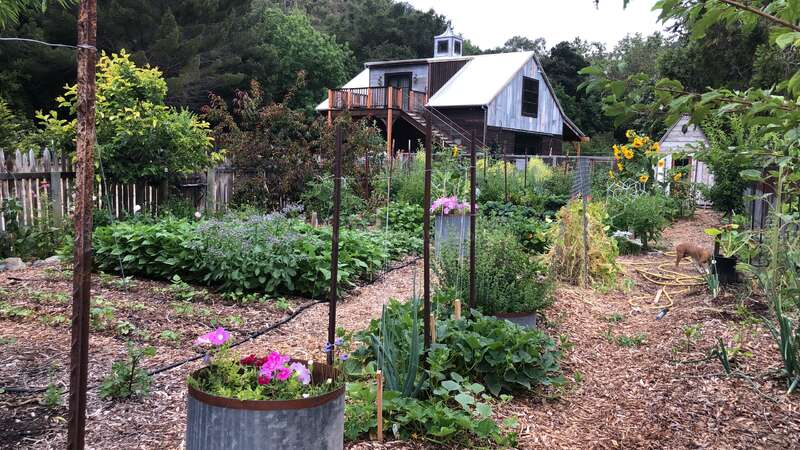
Building a Secure and Cozy Chicken Coop
The chicken coop is your flock's sanctuary, providing shelter from the elements and protection from predators. Here are some essential features to consider when designing or purchasing a coop:
- Size: Ensure the coop is large enough to comfortably house your chickens, providing adequate roosting space and nesting boxes.
- Ventilation: Proper ventilation is crucial for maintaining a healthy environment inside the coop, preventing moisture buildup and ammonia fumes.
- Roosting Bars: Provide sturdy roosting bars for chickens to perch on at night.
- Nesting Boxes: Offer one nesting box for every 3-4 hens. Line the boxes with soft bedding, such as straw or wood shavings.
- Secure Run: Enclose the outdoor run with sturdy wire mesh to prevent predators from entering. Consider burying the wire a few inches below ground level to deter digging animals.
- Easy Access: Design the coop with easy access for cleaning, egg collecting, and feeding.
Feeding Your Flock: A Balanced Diet for Healthy Hens
A well-balanced diet is essential for optimal egg production and overall health. Here's a guide to feeding your backyard chickens:
- Chicken Feed: Purchase a high-quality layer feed that contains the necessary protein, vitamins, and minerals for laying hens. Choose organic chicken feed when possible.
- Grit: Provide grit (small stones or sand) to aid in digestion.
- Oyster Shell: Offer oyster shell as a supplemental source of calcium, which is crucial for strong eggshells.
- Treats: Supplement their diet with healthy treats such as fruits, vegetables, and mealworms. Avoid giving chickens sugary, salty, or processed foods.
- Fresh Water: Always provide access to fresh, clean water.
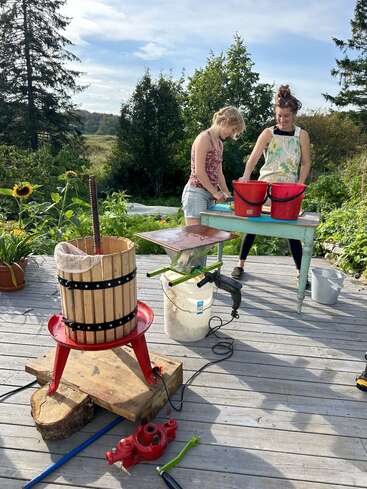
Maintaining a Healthy Flock: Preventing Common Ailments
Regularly observe your chickens for signs of illness or injury. Here are some common ailments to watch out for:
- Mites and Lice: These external parasites can cause itching, feather loss, and decreased egg production. Treat with appropriate insecticides.
- Worms: Internal parasites can rob chickens of nutrients and weaken their immune system. Deworm your flock regularly with a vet-approved dewormer.
- Coccidiosis: A parasitic disease that affects the intestines, causing diarrhea and dehydration. Treat with coccidiostats.
- Egg Binding: When an egg gets stuck in the hen's oviduct, it can be a life-threatening condition. Provide adequate calcium and ensure proper hydration to prevent egg binding.
- Predator Attacks: Take measures to prevent predator attacks.
Collecting and Storing Fresh Eggs
Collecting eggs is one of the most rewarding aspects of raising backyard chickens. Collect eggs daily to prevent them from becoming soiled or broken. Store eggs in the refrigerator to maintain freshness. Homegrown eggs will be far fresher and taste better than anything you can buy in a store.
Composting with Chicken Manure
Chicken manure is a valuable resource for organic gardening. Compost chicken manure with other organic matter, such as leaves, grass clippings, and kitchen scraps, to create a nutrient-rich soil amendment for your garden. The compost will be teeming with the nutrients for your seasonal harvest!
Winterizing Your Coop: Keeping Your Chickens Warm in Cold Weather
Prepare your coop for winter by providing adequate insulation, preventing drafts, and ensuring a constant supply of fresh water. Chickens are surprisingly resilient to cold weather as long as they have a dry, draft-free coop and plenty of food and water.
Integrating Chickens into Your Garden: A Symbiotic Relationship
Chickens and gardens can coexist harmoniously, benefiting each other in many ways. Allow chickens to roam in your garden during the off-season to help clean up crop residue and control pests. Rotate their access to different areas of the garden to prevent overgrazing.
The Joys of Backyard Chicken Keeping: A Rewarding Experience
Raising backyard chickens is a rewarding experience that connects you to nature, provides fresh eggs, and enhances your sustainable home lifestyle. From the first cluck to the daily egg collection, you'll quickly discover the joys of raising your own flock.
Starting with backyard chickens can be daunting, but so rewarding.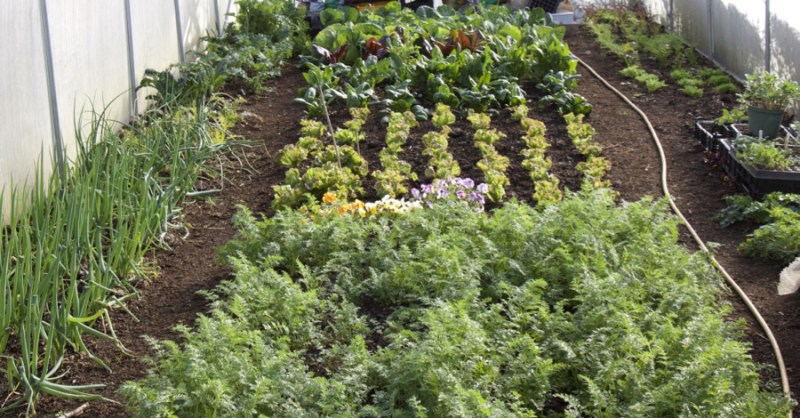
What are your favorite tips for raising happy, healthy hens? Share them below!